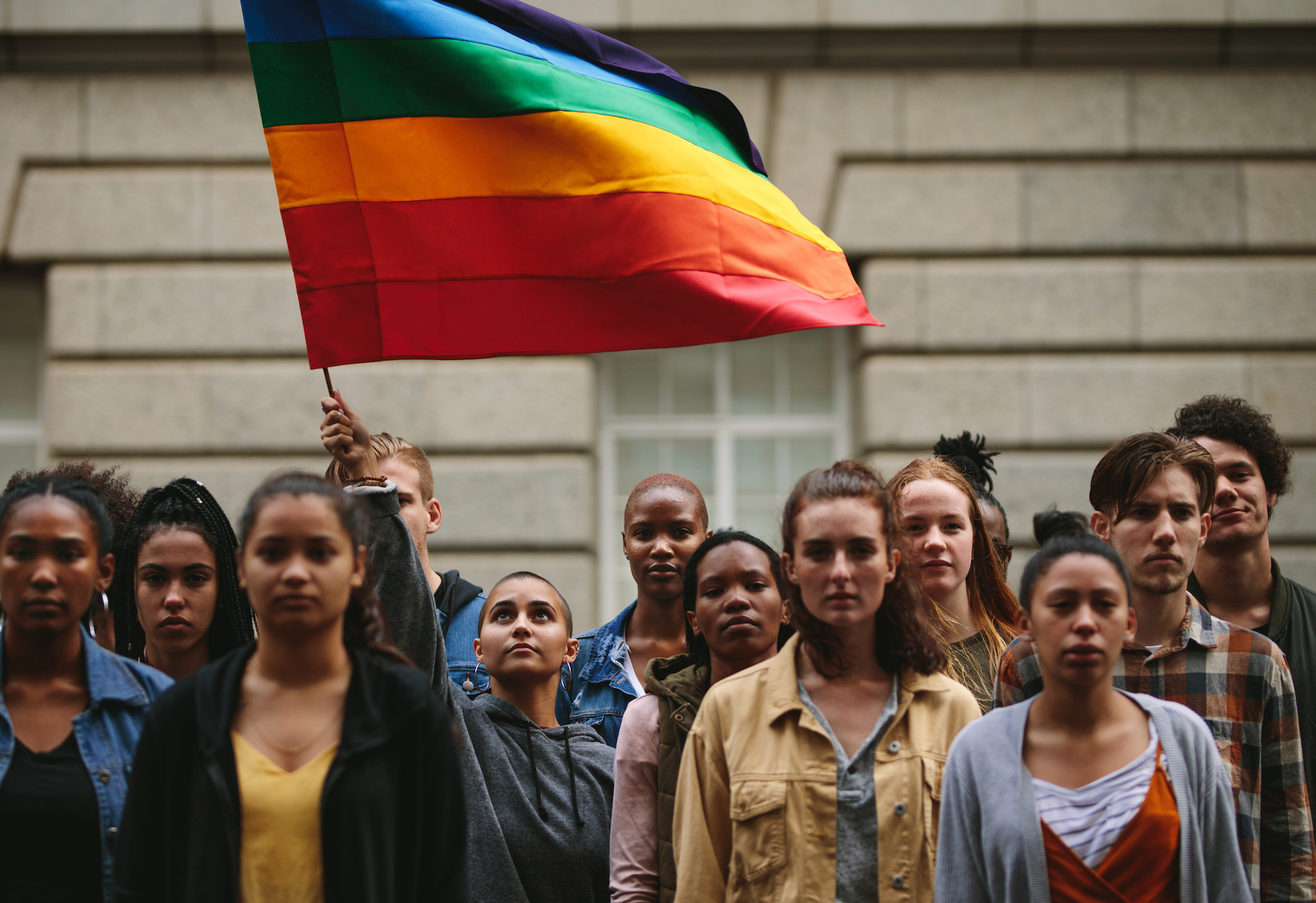Pride Month holds great significance in Canada as a time to celebrate and support the LGBTQIA2S+ community. Beyond the parades and festivities, it is crucial to understand the unique challenges the community faces when it comes to accessing mental health services.
At Georgia Strait Women’s Clinic, we believe that mental health treatment is for everyone, and we are committed to providing support and care to individuals of all gender identities and sexual orientations. In this blog, we will discuss the unfair challenges the LGBTQIA2S+ community faces and how discrimination and stigma impact mental health.
Why Pride is Necessary
We all experience ups and downs in our mental health, affecting our ability to express ourselves, connect with others, and lead fulfilling lives. Unfortunately, the LGBTQIA2S+ community has a disproportionate burden of mental illness in comparison to their cisgender or heterosexual peers due to ongoing struggles like social exclusion, discrimination, and stigma.

It’s important to recognize that existing as a member of this community comes with its own set of challenges, including mental health challenges and substance abuse. This is why Pride is so important. Individual expression, identity, and orientation deserve to be celebrated. But we can’t forget, the existence of Pride is rooted in the ongoing battle for basic human rights.
The Impact of Discrimination and Stigma on LGBTQIA2S+ Individuals
Your environment can influence your mental health and overall well-being. Acceptance, existing free from harm, and having access to resources are all essential socioeconomic factors in maintaining good mental health.
However, for LGBTQIA2S+ individuals, these factors are unfortunately too often derailed by discrimination, stigma, harassment, and hate crimes. Sadly, these experiences can leave a lasting impact and contribute to higher risks of mental health issues.
Everyone Needs a Support Network
“Coming out” and gender transition are major milestones for individuals. While they can be incredibly liberating, they also come with emotional challenges and risks. The potential loss of support from family and friends adds to the strain—homophobia and transphobia, coupled with isolation and alienation, further impact mental health. Supportive networks and affirming environments become even more crucial during these times.

This potential loss of supportive networks puts an already vulnerable community of people at further risk. The pressure and stress of feeling like you could lose your family if you want to live authentically weigh on many people – unfairly so.
Intersectionality and Marginalization
LGBTQIA2S+ individuals often face multiple layers of discrimination – not just for their sexual orientation but other aspects of their identity, such as race, gender, disability, or income. These layers of discrimination make it even harder for individuals to access the resources and support they need.
Acknowledging the challenges faced by those who belong to multiple marginalized communities is crucial. By doing so, we as a society can work towards creating a more inclusive, supportive environment for all.
Substance Abuse Within the LGBTQIA2S+ Community
According to Healthline, individuals within the community have a greater chance of facing substance use problems when compared to the broader population. Statistics Canada shows that alcohol, tobacco, and other drugs are frequently used as coping mechanisms or self-medication for mental health issues.

Youth are particularly vulnerable; this group is 14 times more at risk for substance abuse and suicide than their heterosexual peers. Moreover, a significant portion of the trans community in Canada has either seriously considered or attempted suicide. These striking statistics highlight the urgent need for support and intervention.
Seeking Help and Promoting Mental Health for the LGBTQIA2S+ Community
The mental health challenges faced by individuals are significant. It is essential to continue supporting and promoting mental health and well-being for the LGBTQIA2S+ community. Ongoing advocacy, education, and inclusivity are crucial in creating a more supportive and affirming society.
Reducing stigma and creating safe spaces for individuals to seek help is paramount. This can be done through:
- Open dialogue, this may include difficult but necessary conversations
- A deeper understanding of the LGBTQIA2S+ community among healthcare professionals
- Inclusive, accessible, and affirming mental health services
- Support networks, acceptance, and unconditional positive regard
If we’re quiet and ignore difficult topics or even topics we don’t fully understand, there’s no growth. If we don’t educate ourselves and advocate for ourselves and others, there’s no change.
Fostering Inclusive Mental Health Support
Mental health services are for everyone, regardless of sexual orientation or gender identity. As we celebrate Pride Month, let us support one another’s mental well-being and celebrate the beautiful diversity within the LGBTQIA2S+ community.
If you or someone you know is struggling with mental health and/or substance abuse, contact us for support. At Georgia Strait Women’s Clinic, we are committed to providing compassionate care, support, and resources to all. We hope this pride season is filled with love, acceptance, and celebration – Happy Pride!
Additional Resources
The Lesbian, Gay, Bi & Trans Youthline offers free peer support for youth aged 26 and under (1-800-268-9688).
Parents, Friends of Lesbians and Gays (PFLAG) is a resource for LGBT people and their families.
Brite Line is Edmonton’s first mental health and wellness helpline dedicated to supporting people in Edmonton’s 2SLGBTQIA+ community.
UNYA’s 2-Spirit Collective provides support, resources, and programming for Indigenous youth, ages 15 to 30.




